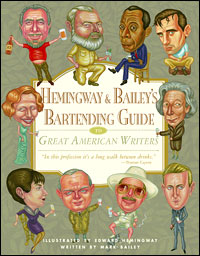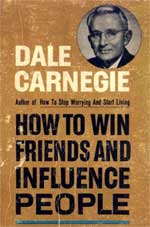I once knew a man who claimed to have read every book in the English canon.
I took a writing class at Clackamas Community College in the fall of 1995. One of my classmates was an Hispanic man for whom English was a second language. This fellow loved to read and he loved to write, but felt his grasp on both was rather tenuous. How could he improve? He decided to read every great book in the western canon. To this end, he found a list of the hundred greatest books and, over the course of several years, he read them all.
Obviously, any such list of “the hundred greatest books” is going to be, by its very nature, somewhat limited and somewhat arbitrary. This is irrelevant. The point is this man had picked a pool of great books, had read them, and he was much the better for it. Of all my writing classmates, his stories had the greatest depth and texture. Was this solely because of his reading experience? Probably not, but I’m certain that his breadth of knowledge helped him.
How could it not?
I’ve come to view the whole of literature as a vast, interconnected web. Mortimer Adler and Robert Hutchins, in their The Great Books of the Western World, termed this “The Great Conversation”, a dialogue between authors which spans centuries. (Millennia!)
If you are new to the classics, this great conversation is not immediately apparent. If, say, you pick up and read (as your first classic) Thomas Hardy’s Jude the Obscure, the book’s connection to the western canon is not visible. You don’t know what to look for.
The more classics you read, the more apparent the connections become.
Maybe you read a dozen more books, and familiarize yourself with the plots and details of twenty more. If you then pick up Jules Verne’s 20,000 Leagues Under the Sea, you’ll begin to sense tiny filaments connecting the novel to others you’ve read; you’ll note references to The Odyssey and The Tempest; or, looking forward, hints of things to come in Crime and Punishment and The Stranger. (What’s more, you’ll begin recognize connections to stories outside the canon — isn’t Disney’s 1978 film The Black Hole nothing more than 20,000 Leagues in space? Is this intentional?)
Eventually, you will have read a large portion of the canon. (Half, let’s say.) Now when you read a classic, the threads connecting it to other great works are obvious and everywhere. (They were there before, but you hadn’t the experience to note them.) You can not only see the connections to books you’ve read, but you can also sense connections to books you haven’t read. Sometimes you know where the connection leads (”Oh, a reference to Becky Sharp. Gosh, I need to read Vanity Fair sometime.”), sometimes you don’t (”I wonder what this whole thing about a madeline is…”).
Moreover, references to the canon abound in everyday life. (At least in my everyday life.) The more you are familiar with the great books, the more you notice these references, the richer your everyday experience becomes. Sure, an average issue of Harper’s or The National Review is laden with classical allusions, but even a copy of Time or Newsweek or — gasp — Entertainment Weekly contains several references to literature. The greater your familiarity with the canon, the more of these references you catch, and the richer your reading experience, even if you’re only reading an article that makes a passing comparison of Madonna to Becky Sharp.
Why the rhapsody about English Lit?
Last night we watched the recent film adaptation of Vanity Fair. Actually, to begin with, Kris watched while I used my laptop to surf the internet. I paid only a sliver of attention. As the movie progressed, I found myself drawn into it. Though it was obviously watered down, I could sense the “great book” quality beneath it. Eventually I was fully engrossed in the story, and I regretted having not paid attention earlier — how are these Crawley people related to Pitt?
The western canon is a very real presence in my life. I have three books that contain reading lists constructed from the canon, my favorite of which is Clifton Fadiman’s The Lifetime Reading Plan.
Lisa and I discuss this book from time-to-time. We both like it, but we don’t like some of the recent changes. I have the third edition, and like its reading list, but I think Lisa has the fourth. While the structural changes to the list between editions makes sense (works are now organized chronologically rather than by type), we think the changes to the reading list’s content are more for political correctness than for quality.
(Tangent: I’m all in favor of an inclusive canon, one which represents of all genders, creeds, and colors, but not at the expense of quality. It is a part of our history that certain segments of the population were oppressed. The remedy to this situation is not to rewrite the past, to argue that works of lesser quality deserve a place in the canon simply because they’re written by someone who was oppressed at the time; the solution is to allow these people to craft a legacy now, to encourage them to create works that will stand the test of time. A stop-gap measure is one in common practice: the creation of specialized “mini-canons” featuring, for example, the best writing by women through the centuries, etc. I believes a rich cultural history is evident when one is able to look at the canon and see, with the advent of Jane Austen, the presence of women in the canon. This tells a story, and an important one.)
It’s surprisingly difficult to find comprehensive reading lists on the web. Some brief googling revealed the following:
Whichever list you choose, the important thing is to begin reading the classics today. Your life will be the better for it.





